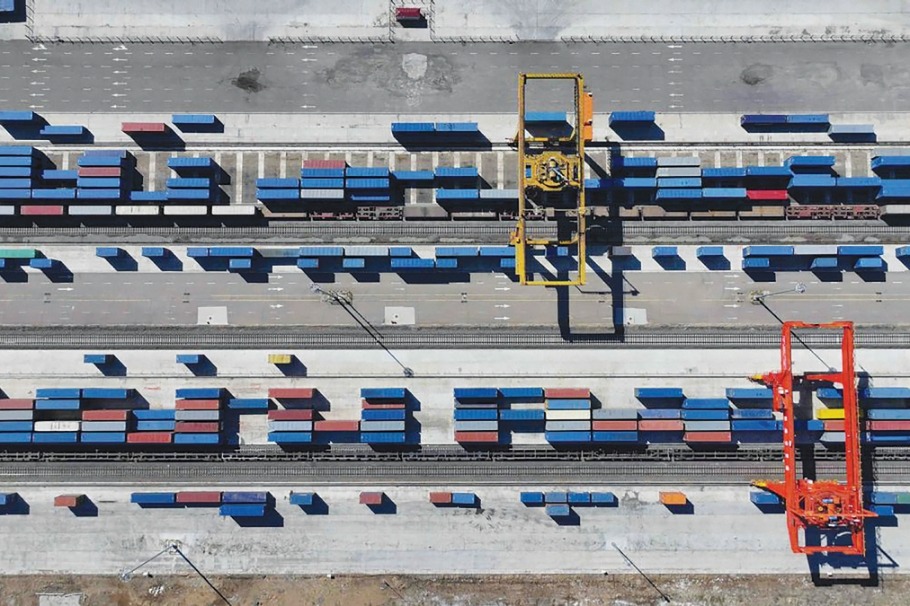Chinese approach not necessarily contradictory to Western systems


The 19th National Congress of the Communist Party of China in 2017 proposed a new concept, the "Chinese approach" to modernization, according to which a country, independent of any interference or influence, should decide what political system to follow to achieve economic development.
In the past, China faced the same problem that many other countries are facing today. During the early modern period, China had to open its doors to the outside world to learn from the West, while safeguarding its culture from excessive Western influence in the face of potential invasion by foreign forces. But for countries in Asia, Africa and Latin America, most of which gained independence from the colonial rulers only after the end of World War II, it was difficult to strike the right balance between opening-up and protecting their cultures and traditions.
True, local political parties played the leading role in these countries' liberation. Yet many of their leaders, because they attended Western universities, adopted the Western-style political system in the newly independent countries. And since Western political systems were not necessarily suited to their national conditions, many of those countries have failed to achieve economic development and remain poor until today.
Yet some successful attempts have been made to explore development paths independent of the Western model. China's development model is one of them. Since the launch of reform and opening-up in 1978, China has achieved sustainable development, especially on three fronts.
First, China has achieved rapid economic growth and become the world's second-largest economy, with its per capita GDP increasing from less than $300 in the early 1980s to more than $10,000 last year, and its middle-income group comprises about 400 million people, or about 30 percent of the total population. Also, thanks to its resilience, the Chinese economy was not severely affected by either the 1997 Asian financial crisis or the 2008 global financial crisis. And it is the only major economy to recover from the impact of the COVID-19 pandemic and realize positive growth in 2020.
Second, it has maintained social stability over the past decades. Many may argue that social stability is closely related to economic growth. But even the world's largest economy and only superpower, the United States, has witnessed frequent social unrest due partly to rising racism and populism and the widening income divide.
Even in the biggest economy, the US middle class has shrunk from 70 percent of the total population in the 1980s to 50 percent amid rising poverty. By contrast, China has lifted more than 800 million people out of abject poverty over the past four decades, contributing 75 percent to the global poverty reduction.
Third, under the leadership of the Communist Party of China, the country's political system has progressed with the times. The CPC overthrew feudalism and kept pace with the international communist movement in the aftermath of the May Fourth Movement, and didn't shy away from borrowing new ideas and systems from the West and adapting them to the local conditions.
But the Party has always been fully aware of its initial purpose and the bottom line of engaging with the West, that is, learning from the outside world to better safeguard its independence rather than undermining it. That is why despite turning to the West as well as Japan in the 1980s, the Party found the right path to modernize China, not by negating China's political system and turning it into a Western one but learning from the West and adapting the policies and practices to national conditions to build a socialist country with Chinese characteristics.
After the collapse of the Soviet Union in 1991, the West triumphantly declared that Western-style democracy is the best political system in the world, and some Western countries, particularly the US, made increasing efforts to show that China's political system posed a threat to "democracy", provoking hostility.
However, the fact is, China's political system is China's choice that suits its own conditions, but that doesn't mean it is necessarily contradictory to the Western political system. As an open party, the CPC is happy to embrace new things while staying true to its aspirations, and that's why it has led China to make remarkable achievements.
This is an excerpt of his recent speech at the virtual forum titled "The Status and Role of Political Parties: Governance in Developing Countries" held by the Party School of the Central Committee of the CPC. The views don't necessarily represent those of China Daily.


































